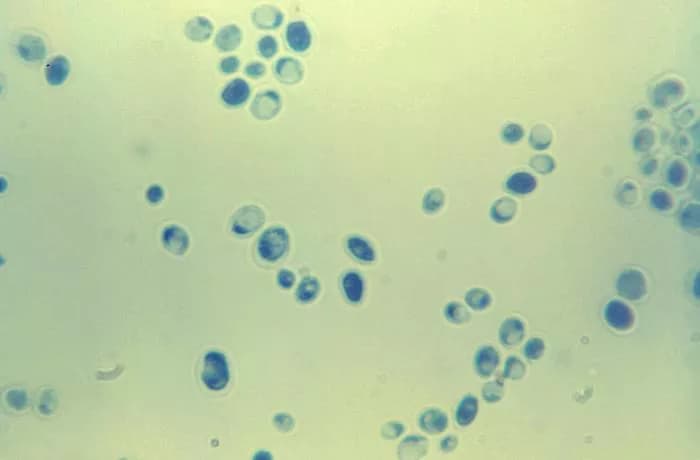What are the other Names for this Test? (Equivalent Terms)
- C. Albicans RNA Blood Test
- Candida Sp rRNA Blood Test
- Infectious Agent Detection by Nucleic Acid, Candida Species, Blood Test
What is Candida Albicans RNA PCR Blood Test? (Background Information)
- Candida albicans (or C. albicans) is a species of fungi that is naturally present in the oral and genital tract in humans. It may infect individuals with a weakened immune system or those who use certain antibiotics
- Fungi (plural for fungus) are a diverse, complex group of microscopic organisms. A small subset may cause diseases in healthy individuals, which are usually mild. However, those with weakened immune systems may experience severe forms of the illness
- Fungi undergo a complex, two-phase life cycle. During their vegetative phase, fungi grow and develop. They then reproduce during their reproductive phase
- Yeasts are fungi that are single-celled and grow filaments during their reproductive phase. Molds are multi-celled and filamentous throughout their life cycles
- Many disease-causing fungi switch between yeast and mold forms depending on the temperature of their surroundings. At room temperature (25°C), they grow as multicellular molds. They then convert to single-celled yeasts, when they enter a human host (body temperature 37°C)
- C. albicans exist in up to 80% of the human population without causing harmful effects. This is because their growth is kept in check by the immune system and competition with other microorganisms
- Antibiotics may disrupt the balance of microorganisms in the oral and genital tract and create conditions that favor C. albicans growth over other microorganisms. This is especially true, if C. albicans possess antibiotic resistance
- The Candida Albicans RNA PCR Blood Test identifies candida present in blood. It uses a technique called PCR to detect traces of specific RNA that candida is known to possess, but that which is absent in humans
What are the Clinical Indications for performing the Candida Albicans RNA PCR Blood Test?
Following are the clinical indications for performing the Candida Albicans RNA PCR Blood Test:
- Individuals suspected of having candida infection, which is marked by:
- Fever and chills
- Septicemia (blood infection)
- Individuals whose blood infection does not get better on treatment with adequate antibiotic therapy
Septicemia caused by candida is a fairly common condition. Currently, candida infection affecting the bloodstream is the 4th most common cause of septicemia. The prognosis is poor with a mortality rate of 50%. Hence, early detection and treatment of candida infection in blood is very critical.
How is the Specimen Collected for Candida Albicans RNA PCR Blood Test?
Following is the specimen collection process for Candida Albicans RNA PCR Blood Test:
Sample required: Blood
Process of obtaining blood sample in adults:
- A band is wrapped around the arm, 3-4 inches above the collection site (superficial vein that lies within the elbow pit)
- The site is cleaned with 70% alcohol in an outward spiral, away from the zone of needle insertion
- The needle cap is removed and is held in line with the vein, pulling the skin tight
- With a small and quick thrust, the vein is penetrated using the needle
- The required amount of blood sample is collected by pulling the plunger of the syringe out slowly
- The wrap band is removed, gauze is placed on the collection site, and the needle is removed
- The blood is immediately transferred into the blood container, which has the appropriate preservative/clot activator/anti-coagulant
- The syringe and the needle are disposed into the appropriate “sharp container” for safe and hygienic disposal
Preparation required: No special preparation is needed prior to the test.
What is the Significance of the Candida Albicans RNA PCR Blood Test Result?
- A positive Candida Albicans RNA PCR Blood Test may indicate infection with Candida albicans
- This blood test is considered to be a rapid test , which is also specific and sensitive
The laboratory test results are NOT to be interpreted as results of a "stand-alone" test. The test results have to be interpreted after correlating with suitable clinical findings and additional supplemental tests/information. Your healthcare providers will explain the meaning of your tests results, based on the overall clinical scenario.
Additional and Relevant Useful Information:
- Presently, the candida antigen and candida antibody detection tests in blood lack sensitivity and specificity. The culture studies take days to weeks to analyze, and hence, the Candida Albicans RNA PCR Blood Test is a very sensitive and specific method to diagnose septicemia caused by candida
- The test can be performed within a few hours of collecting the sample (usually within 6 hours)
- In a majority of individuals, the signs and symptoms of candida infection in the bloodstream are non-specific (fever and chills)
- Evolutionarily, fungi are very closely related to humans. This makes fungal infections difficult to treat, because the number of specific ways a drug can target a fungus (but not a human) is limited
- Over 50,000 different species of fungi exist in nature. Of these, less than 200 species can infect humans and only 50 commonly do so
Certain medications that you may be currently taking may influence the outcome of the test. Hence, it is important to inform your healthcare provider of the complete list of medications (including any herbal supplements) you are currently taking. This will help the healthcare provider interpret your test results more accurately and avoid unnecessary chances of a misdiagnosis.
Please visit our Laboratory Procedures Center for more physician-approved health information:
http://www.dovemed.com/common-procedures/procedures-laboratory/
Related Articles
Test Your Knowledge
Asked by users
Related Centers
Related Specialties
Related Physicians
Related Procedures
Related Resources
Join DoveHubs
and connect with fellow professionals


0 Comments
Please log in to post a comment.